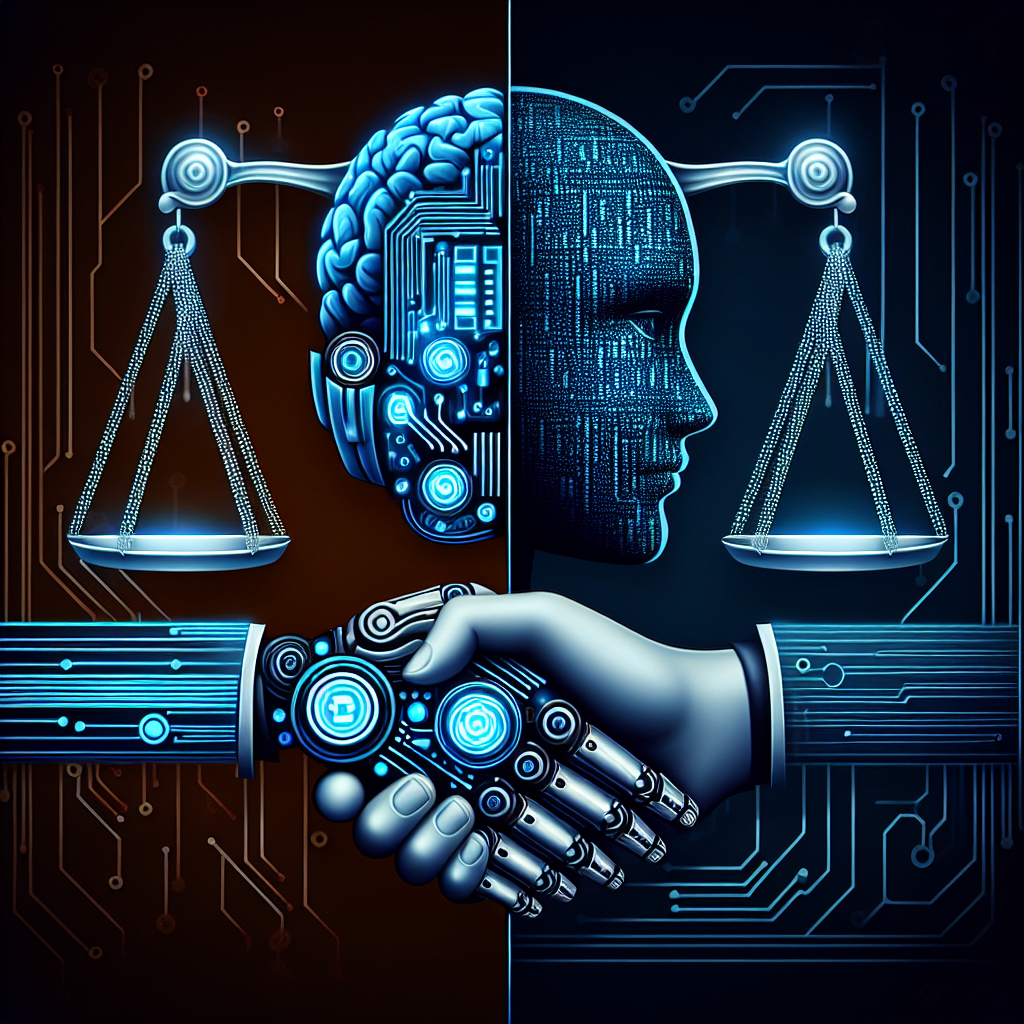Artificial Intelligence (AI) is rapidly transforming various industries, and the legal field is no exception. One area where AI is making a significant impact is in dispute resolution, particularly in mediation and arbitration processes. AI-powered dispute resolution offers a range of benefits, including increased efficiency, reduced costs, improved decision-making, and enhanced access to justice. In this article, we will explore the role of AI in mediation and arbitration and how it is revolutionizing the way disputes are resolved.
Mediation and arbitration are two popular alternative dispute resolution (ADR) methods that are used to resolve conflicts outside of traditional court proceedings. Mediation involves a neutral third party, known as a mediator, who helps the parties involved in a dispute reach a mutually acceptable agreement. Arbitration, on the other hand, involves a neutral third party, known as an arbitrator, who acts as a judge and makes a binding decision on the dispute.
AI-powered dispute resolution systems use advanced algorithms and machine learning techniques to analyze data, predict outcomes, and provide recommendations to help parties reach a resolution. These systems can process large amounts of information quickly and accurately, leading to more efficient and effective dispute resolution processes. AI can also help identify patterns and trends in dispute resolution, leading to better decision-making and more consistent outcomes.
One of the key benefits of AI-powered dispute resolution is its ability to reduce costs. Traditional dispute resolution processes can be time-consuming and expensive, involving multiple hearings, expert witnesses, and legal fees. AI-powered systems can streamline the process, reducing the need for lengthy hearings and allowing parties to resolve disputes more quickly and cost-effectively.
Another benefit of AI-powered dispute resolution is its ability to improve decision-making. AI algorithms can analyze vast amounts of data and provide insights that may not be readily apparent to human decision-makers. This can help parties make more informed decisions and reach fair and equitable resolutions.
AI-powered dispute resolution also offers the potential to increase access to justice. Traditional legal processes can be complex and intimidating, especially for individuals who may not have the resources to hire lawyers or navigate the legal system on their own. AI-powered systems can simplify the dispute resolution process, making it more accessible to a wider range of individuals.
Despite the many benefits of AI-powered dispute resolution, there are also some potential drawbacks and challenges to consider. For example, there may be concerns about the accuracy and reliability of AI algorithms, as well as issues related to data privacy and security. Additionally, there may be questions about the ethical implications of using AI in dispute resolution, particularly in cases where human judgment and empathy are crucial.
To address these concerns, it is important to ensure that AI-powered dispute resolution systems are transparent, accountable, and fair. This may involve developing clear guidelines and standards for the use of AI in dispute resolution, as well as implementing safeguards to protect the rights and interests of all parties involved.
In conclusion, AI-powered dispute resolution has the potential to revolutionize the way conflicts are resolved, offering a range of benefits including increased efficiency, reduced costs, improved decision-making, and enhanced access to justice. While there are challenges and concerns to consider, the use of AI in mediation and arbitration shows great promise in transforming the legal field and improving the way disputes are resolved.
FAQs:
Q: How does AI-powered dispute resolution work?
A: AI-powered dispute resolution systems use advanced algorithms and machine learning techniques to analyze data, predict outcomes, and provide recommendations to help parties reach a resolution.
Q: What are the benefits of AI-powered dispute resolution?
A: Some of the benefits of AI-powered dispute resolution include increased efficiency, reduced costs, improved decision-making, and enhanced access to justice.
Q: Are there any drawbacks to using AI in dispute resolution?
A: Some potential drawbacks include concerns about the accuracy and reliability of AI algorithms, as well as issues related to data privacy and security.
Q: How can the ethical implications of using AI in dispute resolution be addressed?
A: It is important to ensure that AI-powered dispute resolution systems are transparent, accountable, and fair, and to develop clear guidelines and standards for their use.
Q: What is the future of AI-powered dispute resolution?
A: The future of AI-powered dispute resolution looks promising, with continued advancements in technology and the potential for greater efficiency, accessibility, and fairness in resolving conflicts.

